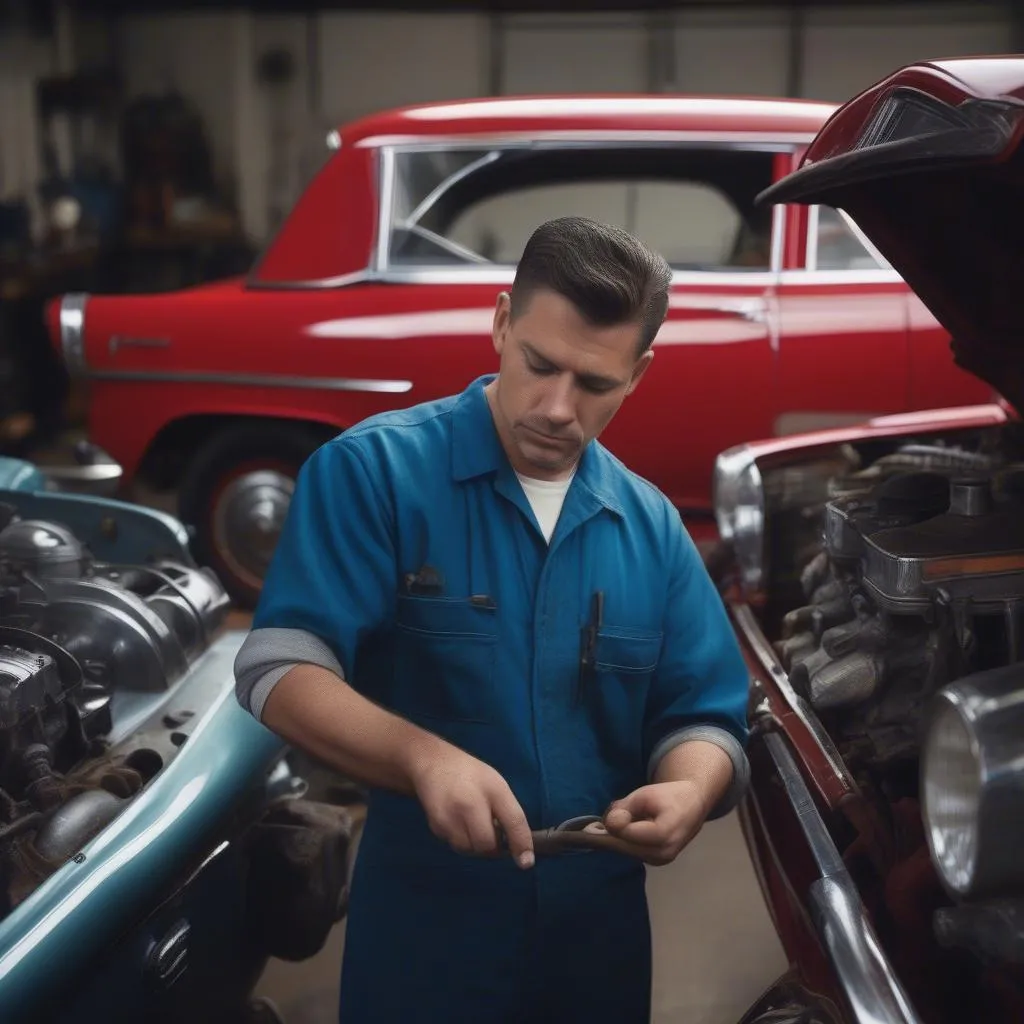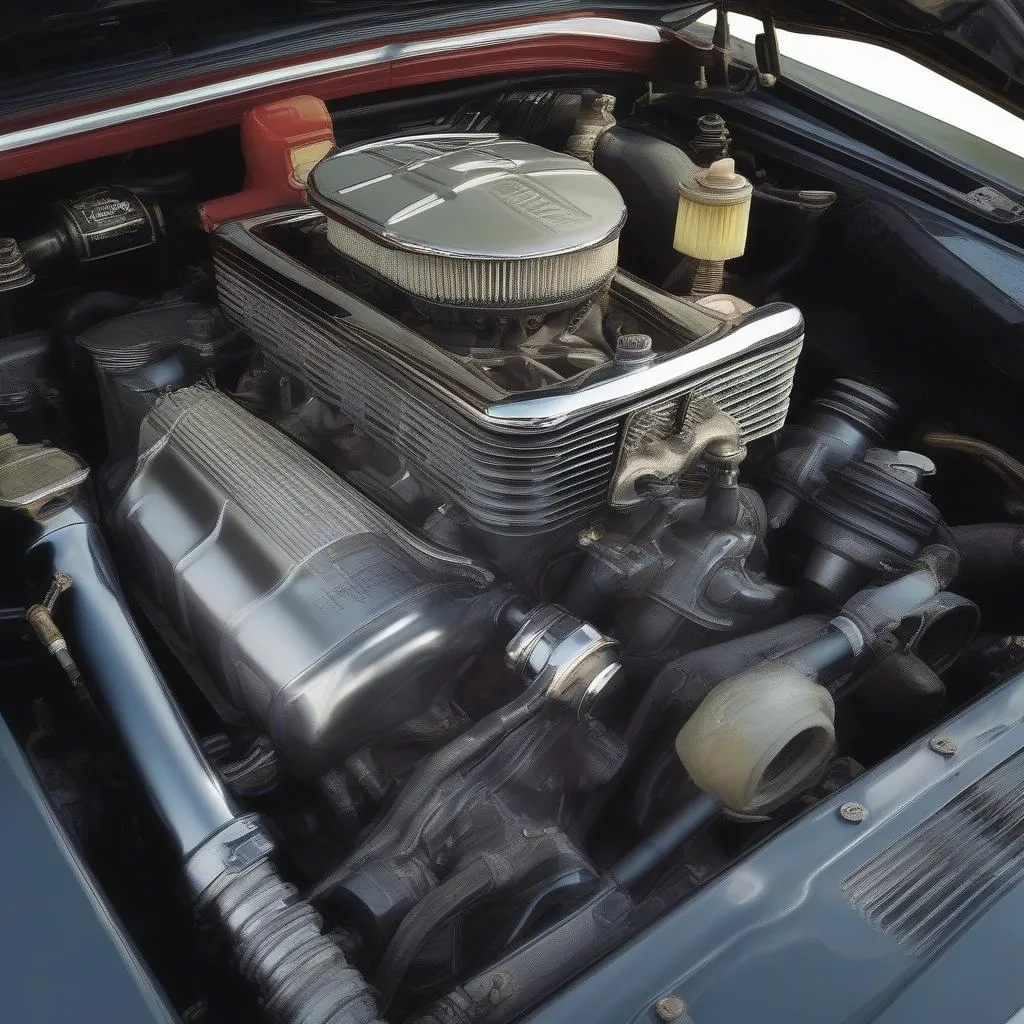Ever gotten behind the wheel of a classic car, one built before On-Board Diagnostics (OBD) were a thing, and wondered how mechanics even knew what was wrong? You hit the gas, the engine sputters, and you’re left scratching your head. Today, with a quick plug of an OBD scanner, you can pinpoint the issue in a flash. But back in the day, diagnosing car problems was a whole different ball game.
Let me tell you, it was a world of intuition, experience, and a whole lot of trial and error. Imagine this: You’re cruising down Route 66 in a 1965 Ford Mustang, the wind in your hair, when suddenly, the engine coughs and dies. You pull over to the side of the road, miles from the nearest town. This wasn’t just a minor inconvenience; it was a real head-scratcher.
What Does “Before Obd” Even Mean?
To understand the pre-OBD era, let’s break it down from a few angles:
The Mechanic’s Perspective:
Before Obd, mechanics were like detectives. They relied heavily on a driver’s description of the problem, listening intently for any unusual noises coming from the engine. It was all about using their senses and years of hands-on experience to narrow down the possibilities.
The Technical Side:
Without a standardized system like OBD, car manufacturers had their own unique ways of monitoring engine performance. Imagine a jumble of different gauges, lights, and even smells that hinted at potential issues. There wasn’t a universal language, making diagnosis a true test of a mechanic’s knowledge.
The Economic Impact:
Diagnosing car problems in the pre-OBD era could be a time-consuming and often expensive process. Mechanics relied on physically inspecting parts, which meant more labor and potentially replacing components that might have been perfectly fine.
Decoding the Mystery: How Did They Do It?
So, how did mechanics in the “before OBD” days crack the code? Here’s a glimpse into their arsenal of tools and techniques:
- The Trained Ear: A skilled mechanic could often diagnose an engine problem just by listening to the way it ran. Knocking, pinging, sputtering—each sound told a story.
- Visual Inspection: Mechanics would meticulously examine the engine bay, looking for anything out of the ordinary—loose wires, leaks, worn-out belts, and more.
- Vacuum Gauges and Timing Lights: These tools provided insights into engine vacuum pressure and ignition timing, helping mechanics identify potential issues with fuel delivery, compression, and more.
- Test Drives and Intuition: Sometimes, the best way to diagnose a problem was to experience it firsthand. A mechanic might take a car for a spin, listening carefully for any telltale signs.
 Mechanic working on a classic car engine
Mechanic working on a classic car engine
Common Questions About the Pre-OBD Era
1. Was it more difficult to repair cars before OBD?
While not necessarily “more difficult,” it certainly required a different skill set. Mechanics relied heavily on their knowledge of mechanical systems, their senses, and their ability to interpret subtle clues.
2. Were cars less reliable before OBD?
Not necessarily. Cars in the pre-OBD era were built to last, often with simpler mechanical systems. However, diagnosing problems could be trickier, and regular maintenance was crucial.
3. What were some common car problems in the pre-OBD era?
Many issues stemmed from the carburetor, ignition system, and fuel delivery. Points and condensers, common in older ignition systems, often required adjustment or replacement.
 A close-up shot of a classic car engine
A close-up shot of a classic car engine
Life on the Road: Then and Now
While the pre-OBD era might seem like a mystery to some, it’s a testament to the ingenuity of mechanics who kept cars running smoothly without the convenience of today’s technology. Next time you see a vintage car cruising down the road, remember the days when diagnosing a car problem was a true art form.
Looking for more insights into automotive technology, past, present, and future? Check out these articles:
Need help navigating the world of car diagnostics? We’re here to help!
Contact us on Whatsapp at +84767531508 for expert support with all your diagnostic tool needs. Our team of automotive specialists is available 24/7 to answer your questions and guide you through the process.